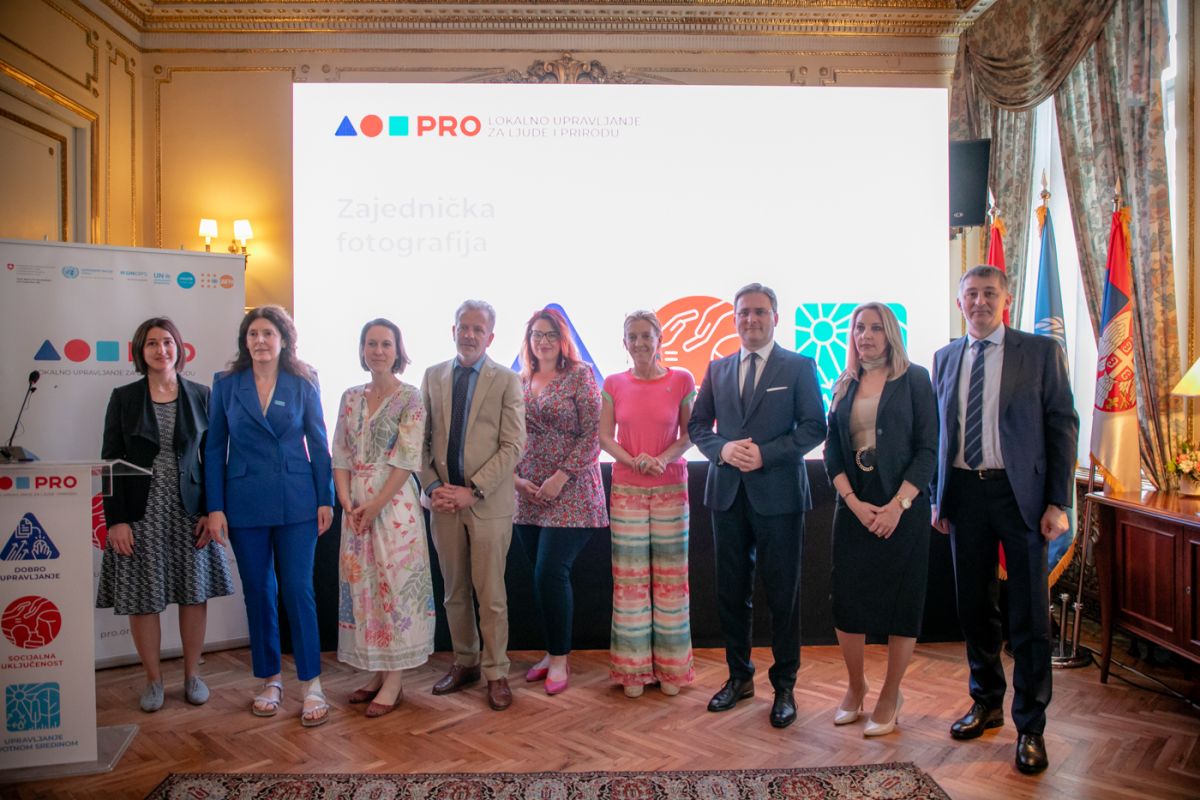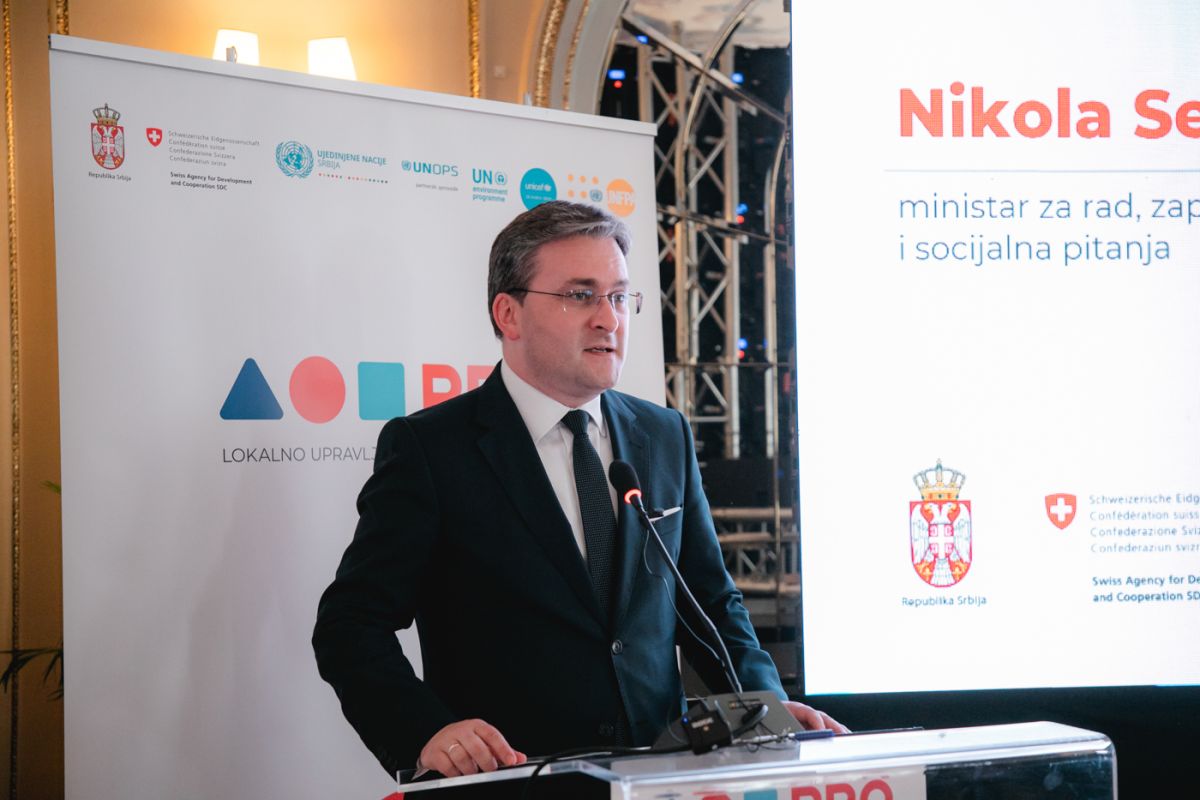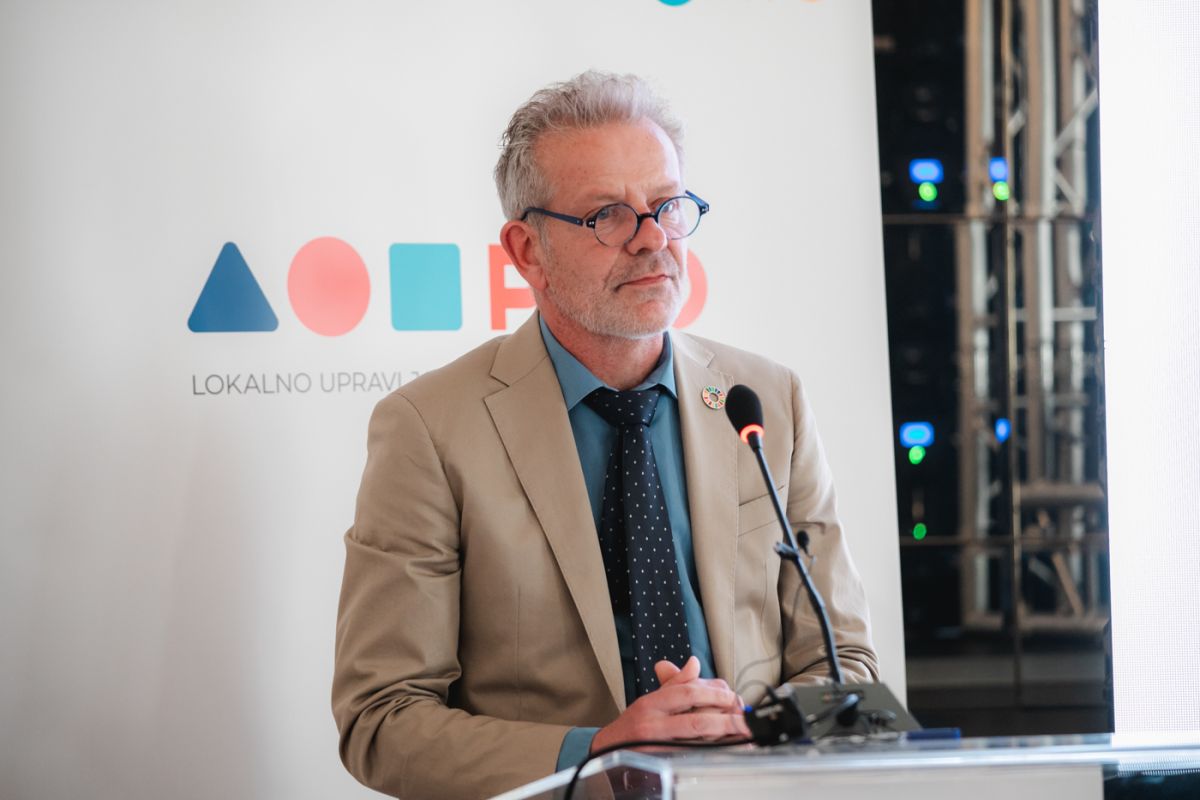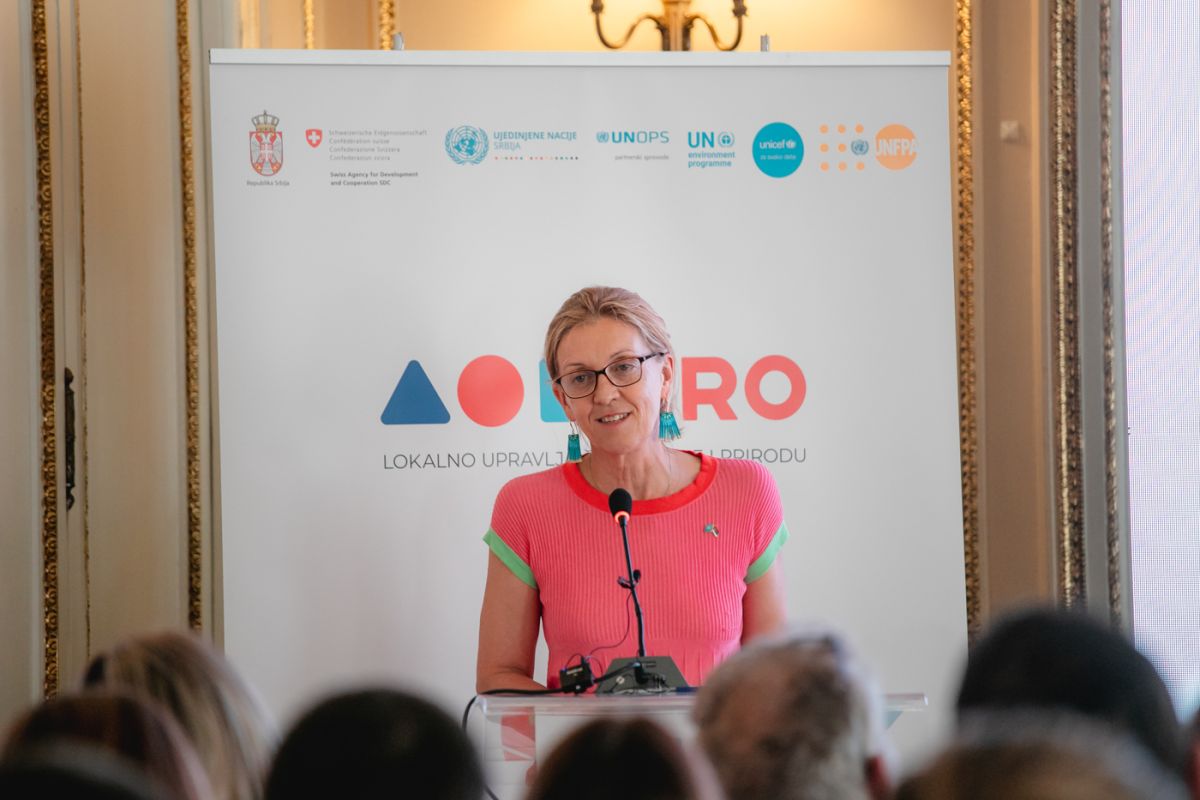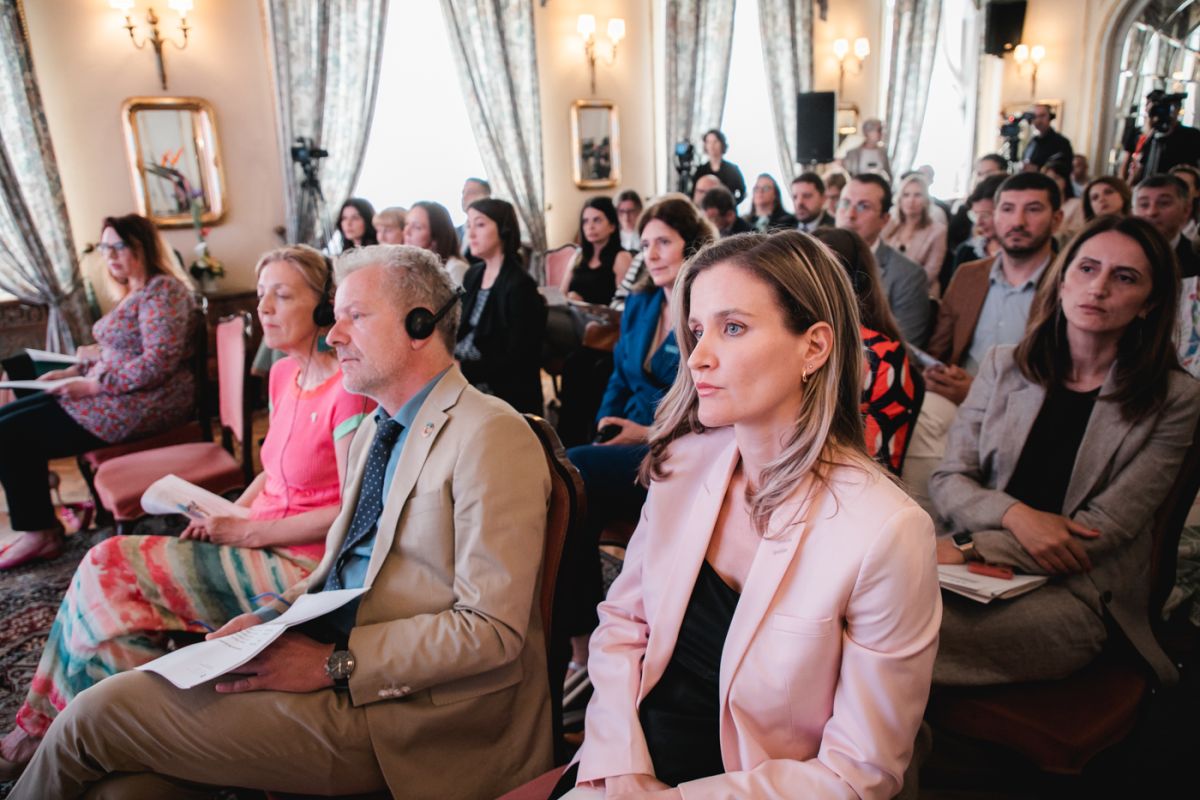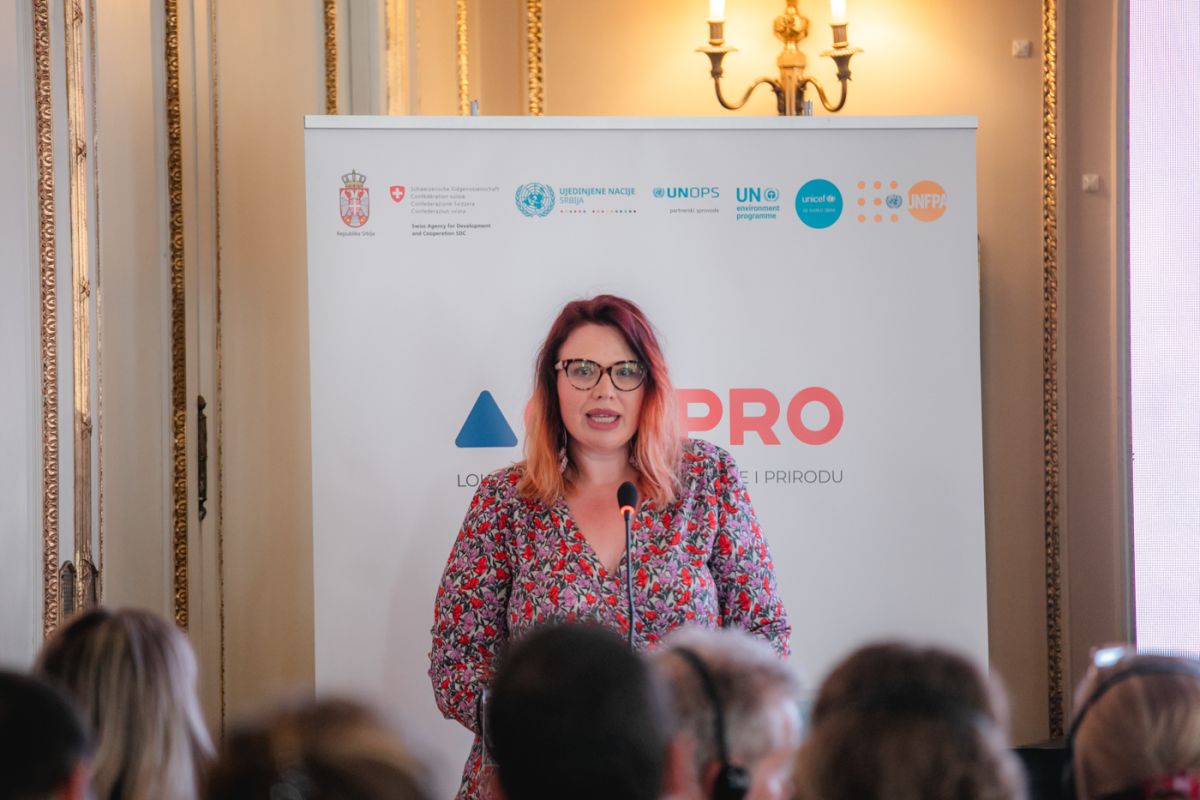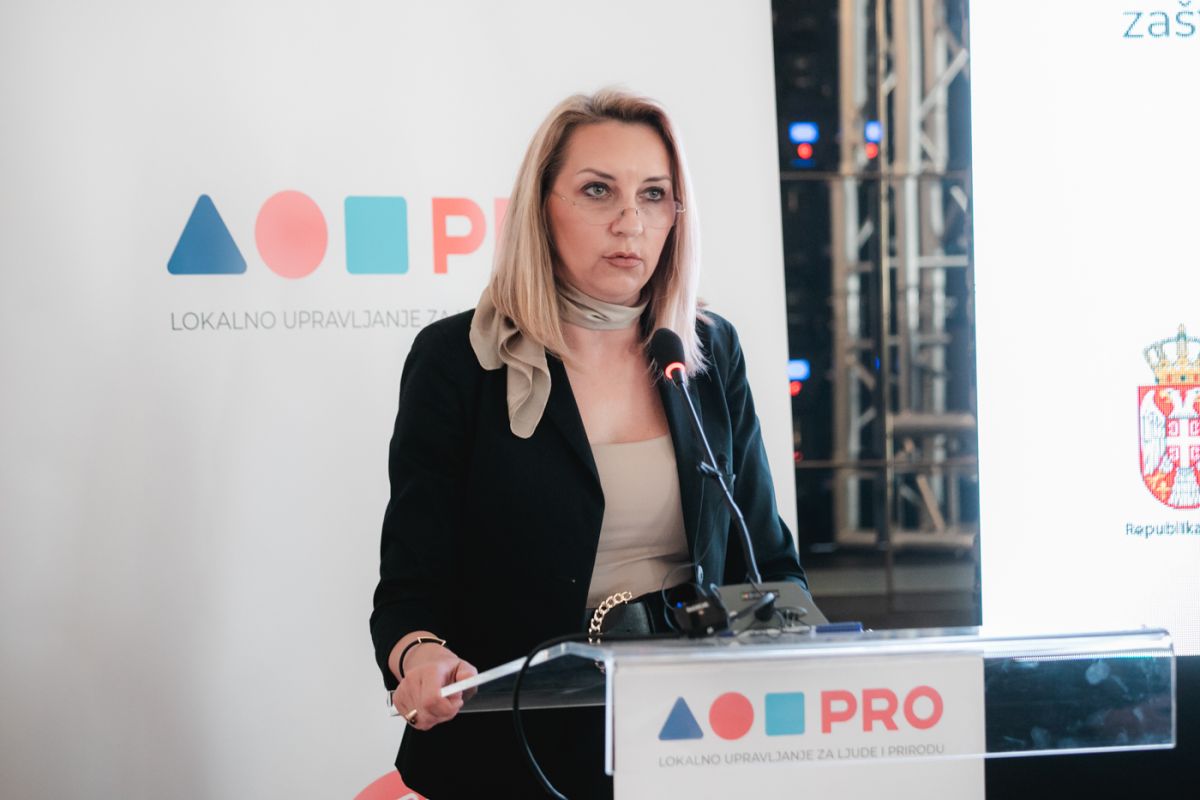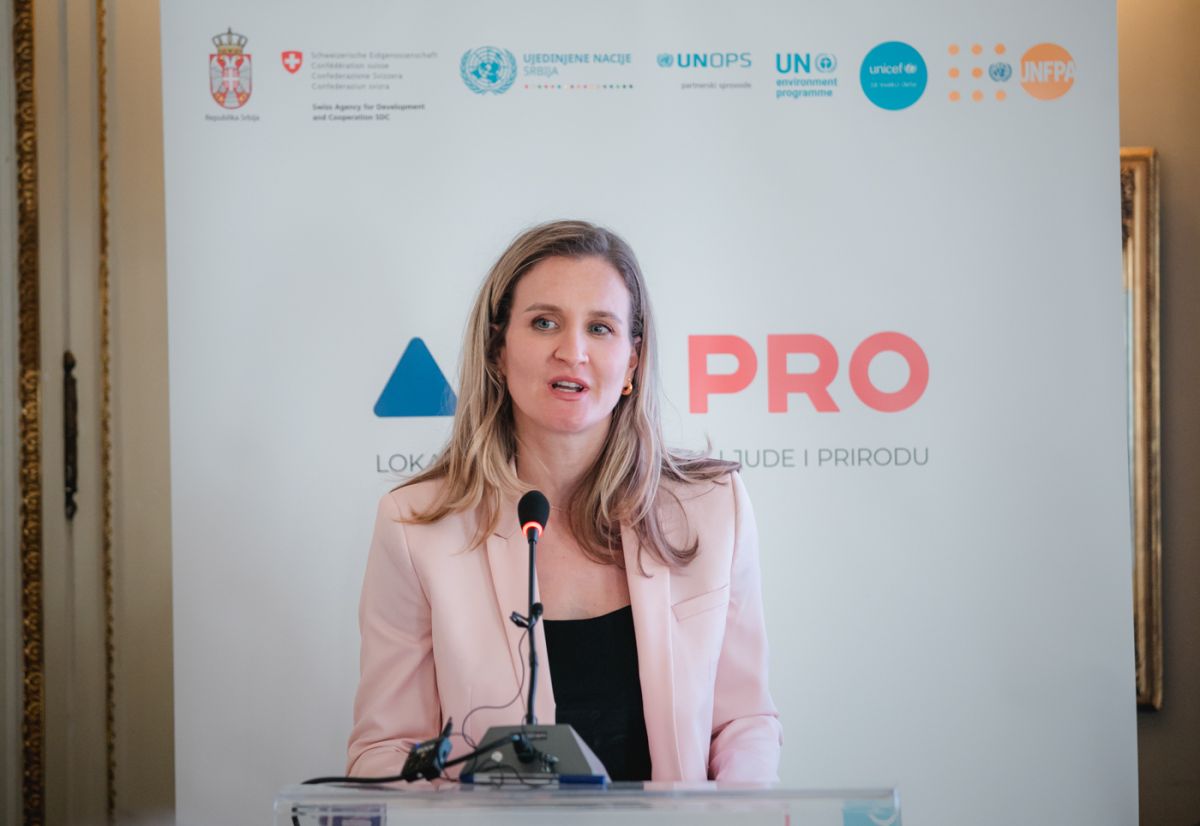Programme “PRO - Local Governance for People and Nature” Starts Implementation
The programme is jointly implemented by United Nations agencies in Serbia - UNOPS, UNICEF, UNFPA and UNEP, in cooperation with the Serbian Government, and is financially supported by the Government of Switzerland. At the Programme launch event, the Minister of Labour, Employment, Veteran and Social Affairs Nikola Selaković emphasised that the project is geared to specifically assist social inclusion of those in need, ensuring that our society is inclusive and equally open for all.
"One of the priorities of the Ministry is to develop social protection services in the local communities, empower vulnerable individuals and families, but also arrange their social inclusion in those communities. Programme focuses on supporting local governments in the social inclusion process, and I am confident it will contribute to enhancing the quality of life of Serbian citizens", Minister Selaković said.
With financial support from the Swiss Government, in total value of 9 million Euros and co-funding from UN agencies weighing in with an additional 1 million Euros, the Programme will implement its activities of capacity building, technical assistance, and grant provision for local self-governments and civil society organization projects, until the end of 2026.
“This innovative programme was created together with the Serbian government, local partners and four UN agencies to address citizens’ needs at the local level in three priority areas. I would like to thank all partners for their active participation in preparing this ambitious and highly relevant intervention that represents the flagship activity of the Swiss cooperation programme for Serbia", Head of Cooperation of the Embassy of Switzerland Richard Kohli said.
UN Resident Coordinator in Serbia Francoise Jacob stated that the aim of this programme is to offer solutions for marginalized groups to enhance their access to services. She added that most of Agenda 2030 deals with combating the triple planetary crisis - specifically pollution, climate change, and biodiversity loss.
"This programme is a direct response to the needs of those coming from the most vulnerable and marginalized communities. With our combined efforts and unwavering support from the governments of Serbia and Switzerland, we can directly impact and improve the daily lives of the Serbian population through enhanced local governance, inclusion, and social services. The programme also deals with environmental protection, thereby enhancing the Serbian population's quality of life and well-being", Jacob concluded.
A total of 99 towns and municipalities in Šumadija, Western, Eastern and Southern Serbia will be eligible for support from the Programme. According to Assistant Minister of Public Administration and Local Self-Government Mila Stanković, concrete results are planned through local self-government units’ capacity building, electronic services, and open data improvements, strengthening local civil society organisations and higher youth participation in the Green Agenda.
“Administrative and municipal services and services in the fields of education and social protection are services of highest priority in terms of their assessment from the standpoint of citizen satisfaction at the local level. A survey on levels of the citizens’ satisfaction with services at the local level will be conducted as part of the Programme. We are conducting this survey to use its results to support local self-governments to strengthen and reinforce areas that citizens identified as needing improvement," Stanković announced.
State Secretary at the Ministry of Environmental Protection Sandra Dokić also addressed the Programme launch ceremony participants. She highlighted how local-level capacity building and inclusion of vulnerable groups are crucial to reducing air pollution and improving the management of waste and waste waters.
"The Programme can help us include informal waste pickers in legal frameworks precisely through social enterprises that we see as showing extremely high potential for the future. The Ministry looks at informal waste pickers from two aspects - on the one hand, they actually contribute to improving environmental protection, and on the other hand it is extremely important that they have adequate protection as vulnerable groups and exercise all other rights," Dokić said.
Part of the Swiss donor funding has been earmarked for implementation of activities complementary to a major solid waste management project implemented by the Ministry of Environmental Protection and financially supported by the European Bank for Reconstruction and Development (EBRD) and the French Development Agency (AFD).
“Supporting vulnerable groups, especially informal waste pickers, was recognized as an opportunity to achieve synergies and establish a partnership between the EBRD and AFD with the Swiss Agency for Development and Cooperation and cooperate with UN agencies through the Programme. This cooperation is of great importance to us”, Associate Director at the EBRD in Serbia Jelena Čeperković said.
The event was attended by representatives of the Ministry of Family Welfare and Demography, Ministry of Tourism and Youth, National Academy of Public Administration, Republic Institute for Social Protection, Environmental Protection Agency, Commissioner for the Protection of Equality, Standing Conference of Towns and Municipalities, Embassy of Sweden, UNDP, UN Women, Helvetas, GIZ, NIRAS, as well as a number of media outlets.
